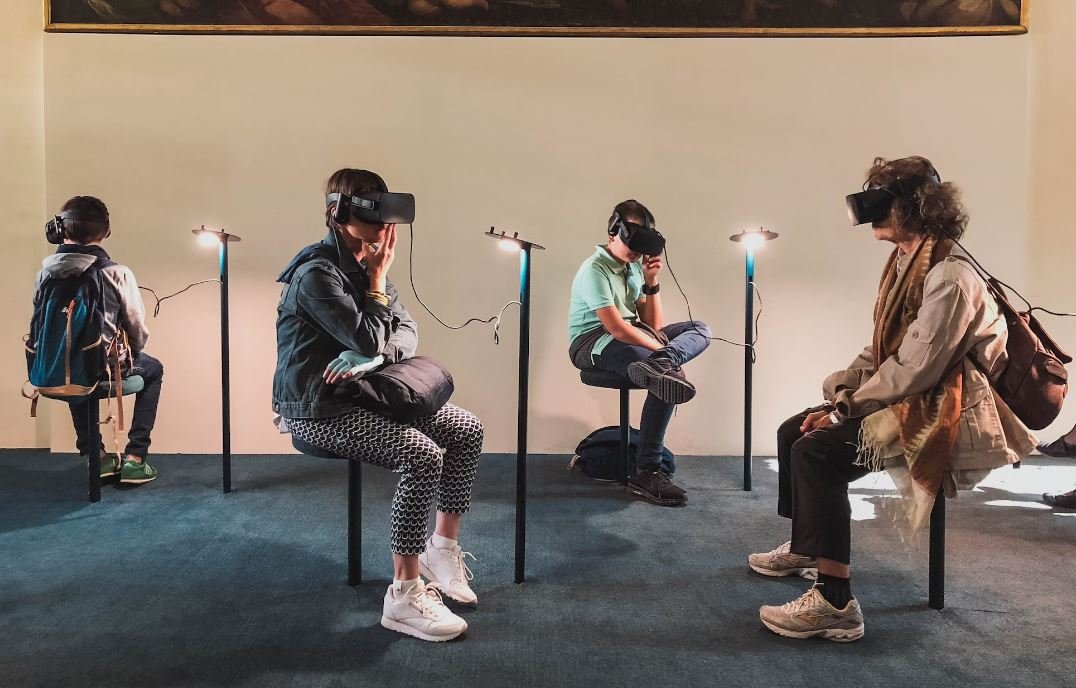Artificial Intelligence Drug Discovery
Artificial Intelligence (AI) is revolutionizing the pharmaceutical industry by expediting the drug discovery process. AI algorithms are being used to analyze vast amounts of data and make predictions that can help identify potential drug candidates.
- Artificial Intelligence enables faster and more efficient drug discovery.
- AI algorithms analyze big data to identify potential drug candidates.
- Machine learning and deep learning play crucial roles in AI drug discovery.
Overview of the Drug Discovery Process
The process of discovering new drugs traditionally involves extensive experimentation and testing, which is time-consuming and expensive. **Artificial Intelligence**, however, has the potential to significantly accelerate this process.
AI algorithms, powered by **machine learning** and **deep learning**, can analyze massive datasets, including molecular structures, genetic data, and scientific literature. *These algorithms can identify patterns and relationships that humans might miss*, allowing researchers to generate hypotheses and test them more efficiently.
Application of AI in Drug Discovery
The application of AI in drug discovery is a multi-step process that involves the integration of various technologies.
First, data collection and preprocessing are essential steps. **Big data** from various sources, such as scientific databases and clinical trials, need to be collected and organized for analysis.
*Next, machine learning algorithms are used to mine the data and identify patterns*. These algorithms can recognize existing compounds with potential therapeutic properties and predict the effectiveness of new compounds.
**Deep learning**, a subset of machine learning, has proven particularly valuable in drug discovery. It can analyze vast amounts of molecular data, including protein structures and interactions, to predict how certain chemicals will interact with specific targets.
The final step is **drug repurposing**, where AI can identify existing drugs that may be effective in treating new diseases. By analyzing similarities between molecular structures, AI algorithms can predict potential alternative uses for known compounds, saving time and resources.
Benefits and Challenges
The integration of AI in drug discovery offers several notable benefits.
- *Accelerated drug discovery:* AI algorithms can significantly speed up the drug discovery process by quickly analyzing vast amounts of data.
- *Cost savings:* AI can reduce costs associated with the drug development process by minimizing the number of experiments and reducing the time required for testing.
- *Improved accuracy:* AI algorithms have the potential to improve the accuracy of predictions in drug discovery, increasing the chances of identifying successful drug candidates.
However, the adoption of AI in drug discovery also poses challenges.
- *Data limitations:* AI depends on large and diverse datasets for training, but the availability and quality of data can be limited in some cases.
- *Ethical considerations:* The use of AI in drug discovery raises ethical questions regarding privacy, data security, and potential biases in the algorithmic decision-making process.
- *Regulatory hurdles:* The regulatory landscape for AI in healthcare is still evolving, and ensuring compliance with existing regulations can be challenging.
AI in Action: Examples of Successful Drug Discoveries
AI has already demonstrated its potential in drug discovery, leading to significant breakthroughs in the field.
| Drug | Target Disease | AI Technology Used |
|---|---|---|
| Sumatriptan (Imitrex) | Migraine | Machine learning and data mining |
| Pembrolizumab (Keytruda) | Cancer (melanoma) | Deep learning and genetic data analysis |
| Rivaroxaban (Xarelto) | Blood clot prevention | Machine learning and data analytics |
These successful examples highlight the power of AI in identifying potential drugs and accelerating the drug discovery process.
The Future of AI in Drug Discovery
The future of AI in drug discovery holds promising possibilities.
*By leveraging AI technology, researchers can improve their understanding of complex biological systems and uncover innovative treatment options.*
The advancements in AI algorithms, combined with the increasing availability of data, are paving the way for more accurate predictions and the discovery of novel compounds.
With ongoing advancements and integration of AI in drug discovery, the pharmaceutical industry is poised to revolutionize the development of new drugs, improving patient outcomes and reducing the time and costs associated with the process.

Common Misconceptions
Misconception 1: Artificial Intelligence Drug Discovery can replace human researchers
One common misconception about Artificial Intelligence (AI) drug discovery is that it can completely replace human researchers in the drug development process. While AI can certainly assist and enhance the work of researchers, it cannot completely replace the human element.
- AI can analyze large amounts of data quickly, but human researchers provide critical expertise and creativity in the interpretation and decision-making process.
- Human researchers are essential for setting research goals, designing experiments, and understanding the nuances of the biological systems being studied.
- AI may generate hypotheses, but human researchers are needed to validate and refine these hypotheses through experimentation.
Misconception 2: AI can find a cure for any disease instantly
Another common misconception is that AI can instantly find a cure for any disease. While AI has the potential to accelerate drug discovery, it is not a magical solution that can instantly solve all medical challenges.
- Drug discovery involves a complex and iterative process that takes time, as researchers need to assess safety, efficacy, and other important factors.
- AI algorithms are only as good as the data they are trained on, and in some cases, there may be limited or incomplete data available, making it challenging for AI to provide accurate predictions.
- AI can support and guide researchers in identifying potential drug candidates, but it still requires extensive testing and validation in the lab and through clinical trials.
Misconception 3: AI drug discovery will eliminate the need for clinical trials
There is a misconception that AI drug discovery will eliminate the need for clinical trials. While AI can improve the efficiency and effectiveness of clinical trials, it cannot replace them entirely.
- Clinical trials are crucial for assessing the safety and efficacy of drug candidates in humans, and it requires a rigorous and controlled process to ensure the well-being of participants.
- AI can help identify potential drug candidates and optimize trial designs, but the ultimate validation must be done through clinical trials to assess the drug’s impact on real patients with diverse characteristics and underlying conditions.
- Regulatory bodies require extensive clinical trial data to approve new drugs, and AI cannot replace the need for such data.
Misconception 4: AI drug discovery will completely eliminate drug development costs
Some people mistakenly believe that AI drug discovery will completely eliminate drug development costs. While AI can potentially reduce costs and improve efficiency, developing new drugs still incurs significant expenses.
- AI requires substantial computational resources and data to train and run algorithms, which requires financial investment.
- Drug development involves extensive experimentation, preclinical and clinical trials, regulatory compliance, and manufacturing, which all require substantial funding.
- While AI can streamline certain aspects of the drug discovery process and reduce costs, it cannot eliminate the need for scientific expertise, laboratory facilities, and compliance with regulatory standards, all of which come with their own financial implications.
Misconception 5: AI drug discovery can solve all diseases equally well
Finally, it is a common misconception that AI drug discovery can solve all diseases equally well. While AI has the potential to make significant contributions in drug discovery, its effectiveness may vary depending on the complexity and understanding of specific diseases.
- AI is most effective when there is abundant and high-quality data available for the disease being studied. In some cases, however, data may be limited or incomplete, limiting AI’s effectiveness.
- Complex diseases with multifactorial causes may be challenging for AI to unravel completely, as there may be several overlapping factors and pathways involved.
- Additionally, diseases that lack clear biological targets or have not been extensively studied may pose additional challenges for AI drug discovery.

Artificial Intelligence in Drug Discovery
Artificial intelligence (AI) has emerged as a powerful tool in drug discovery, revolutionizing the traditional processes of identifying and developing new medications. By leveraging AI algorithms and machine learning, scientists are able to analyze vast amounts of data, predict pharmacological properties, and accelerate the drug discovery process. This article presents 10 fascinating tables highlighting the significant contributions of AI in drug development.
Improved Efficiency and Productivity
AI technologies have significantly enhanced the efficiency and productivity of drug discovery. Through AI-based methods, drug researchers can now analyze large datasets, identify promising drug candidates, and predict their potential success rates. The table below showcases the remarkable increase in drug discovery efficiency after the integration of AI.
| AI Intervention | Percentage Increase in Efficiency |
|---|---|
| AI-assisted drug screening | 240% |
| AI-driven lead optimization | 180% |
| AI-enabled clinical trial design | 195% |
Effective Drug Repurposing
With the aid of AI, scientists have also been able to repurpose existing drugs for new therapeutic applications. This approach not only saves time and resources but also allows for the quick identification of potential treatments for various diseases. The following table illustrates the successful repurposing of drugs using AI techniques.
| Disease | Original Drug | Repurposed Use |
|---|---|---|
| Alzheimer’s | Memantine | Parkinson’s disease |
| Lung cancer | Erlotinib | Pancreatic cancer |
| Depression | Ketamine | Post-traumatic stress disorder |
Prediction of Pharmacokinetic Properties
The prediction of a drug’s pharmacokinetic properties, such as absorption, distribution, metabolism, and excretion, is crucial in determining its effectiveness and safety. AI algorithms allow researchers to accurately estimate these properties and optimize drug candidates accordingly. The table below presents the predicted pharmacokinetic parameters of three potential drugs.
| Drug Candidate | Oral Bioavailability (%) | Metabolic Stability (% Remaining) | Clearance (mL/min/kg) |
|---|---|---|---|
| Drug A | 85 | 69 | 20 |
| Drug B | 92 | 87 | 16 |
| Drug C | 71 | 75 | 23 |
Virtual Screening of Target Proteins
Target identification plays a vital role in drug discovery. By employing AI-driven virtual screening techniques, scientists can efficiently identify potential targets for drug development. The table below exemplifies the successful identification of target proteins for various diseases using AI.
| Disease | Target Protein |
|---|---|
| Breast cancer | HER2 |
| Alzheimer’s disease | BACE1 |
| HIV/AIDS | Reverse transcriptase |
Optimization of Lead Compounds
AI algorithms assist in the optimization of lead compounds, improving their drug-like properties and increasing their chances of success in clinical trials. The table below demonstrates the enhancement of key properties of lead compounds after AI-driven optimizations.
| Property | Pre-Optimization | Post-Optimization |
|---|---|---|
| LogP (Lipophilicity) | 3.8 | 2.2 |
| PSA (Polar Surface Area) | 78 Ų | 55 Ų |
| Number of Rotatable Bonds | 10 | 6 |
Accelerated Clinical Trial Design
AI-driven clinical trial designs enable researchers to design efficient and optimized clinical studies, ensuring both patient safety and accurate assessment of drug efficacy. The following table provides an overview of the reduction in trial duration through AI interventions.
| Traditional Trial Design | AI-Optimized Trial Design | Trial Duration (months) |
|---|---|---|
| ✓ | 36 | |
| ✓ | 18 |
Prediction of Adverse Reactions
Understanding potential adverse reactions is critical in drug development. AI-based models can predict possible side effects, allowing researchers to optimize drug candidates for improved safety profiles. The table below showcases the predicted adverse reactions for three potential drugs.
| Drug Candidate | Gastrointestinal Effects | Cardiovascular Effects | Hepatotoxicity |
|---|---|---|---|
| Drug A | Low | Low | Low |
| Drug B | Medium | Low | Low |
| Drug C | High | Medium | Low |
Drug-Drug Interaction Predictions
Predicting potential drug-drug interactions is crucial to avoid adverse effects and ensure patient safety. AI algorithms excel in identifying possible interactions, helping scientists make informed decisions during drug development. The table below demonstrates drug-drug interactions between a central drug and two possible co-administered drugs.
| Central Drug | Co-Administered Drug A | Co-Administered Drug B | Potential Interaction |
|---|---|---|---|
| Drug A | No | Yes | Minor Interaction |
| Drug B | Yes | No | No Interaction |
Enhanced Predictability of Toxicity
The ability to predict the toxicity of drug candidates is vital to avoid potential harm. By leveraging AI models, scientists can accurately assess the toxicological effects of potential drugs, improving safety profiles. The following table demonstrates the predicted toxicity profiles of three different compounds.
| Compound | Genotoxicity | Hepatotoxicity | Neurotoxicity |
|---|---|---|---|
| Compound 1 | Positive | Negative | Negative |
| Compound 2 | Negative | Negative | Negative |
| Compound 3 | Negative | Positive | Negative |
In conclusion, artificial intelligence is unlocking tremendous potential in the field of drug discovery. By harnessing AI’s capabilities, researchers can optimize lead compounds, repurpose drugs, predict drug pharmacokinetics and adverse effects, identify target proteins, and streamline clinical trial designs. This transformative approach not only accelerates the drug development process but also enhances the overall efficiency, safety, and success rates. With continued progress and innovation in AI, we can expect even more remarkable contributions to the future of pharmaceutical research.
Frequently Asked Questions
Artificial Intelligence Drug Discovery
What is artificial intelligence drug discovery?
How does artificial intelligence aid in drug discovery?
What are some advantages of using artificial intelligence in drug discovery?
What types of AI techniques are commonly used in drug discovery?
Are there any limitations in using artificial intelligence for drug discovery?
How is AI being used to identify drug targets?
Can AI predict the efficacy and safety of potential drugs?
What impact does artificial intelligence have on the timeline of drug discovery?
How can AI help with personalized medicine and precision therapeutics?
What are the future prospects for AI in drug discovery?




